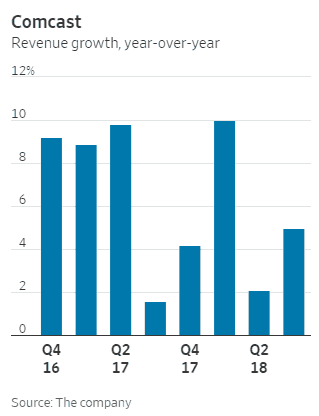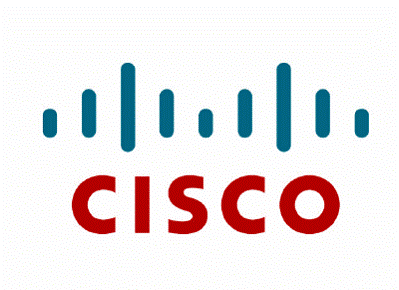 What began two years ago as the paid streaming service of Turner Classic Movies and grew into a highly respected catalog of 1,800 critically acclaimed films, has been axed by its new owner, AT&T, because it failed to attract a mainstream audience of subscribers.
What began two years ago as the paid streaming service of Turner Classic Movies and grew into a highly respected catalog of 1,800 critically acclaimed films, has been axed by its new owner, AT&T, because it failed to attract a mainstream audience of subscribers.
FilmStruck was the five-star version of Netflix, a niche-streaming service that curated a vast collection of art house, international, independent, classic, and cult favorite films that was perceived by many critics as an essential treasure trove of films. Among the titles: “Casablanca,” “Rebel Without a Cause,” “Singin’ In the Rain,” “Citizen Kane,” “The Music Man,” “Bringing Up Baby,” “The Thin Man” and “Who’s Afraid Of Virginia Woolf?” from Warner Bros. Other classics included: “Babette’s Feast,” “Blow Out,” “Boyhood,” “Breaker Morant,” “Chicago,” “A Hard Day’s Night,” “My Life as a Dog,” “Our Song,” “The Player,” “A Room with a View,” “Seven Samurai,” “The Seventh Seal,” “Thelma & Louise,” “The Times of Harvey Milk” and “The Umbrellas of Cherbourg.”
Last Friday morning, subscribers received a disappointing email:
We regret to inform you that effective November 29, 2018, FilmStruck will be shutting down. As a subscriber currently on a monthly plan, effective immediately you will no longer be billed for FilmStruck and will continue to have access to the service until November 29.
We would like to take this opportunity to thank you for being a FilmStruck subscriber. It has been our pleasure sharing the best of indie, art house, and classic Hollywood with you. FilmStruck was truly a labor of love, and in a world with an abundance of entertainment options – THANK YOU for choosing us.
If you have any questions please visit our FAQs or email the FilmStruck customer service team at [email protected] You can also manage your account by clicking here.
Thank You,
The FilmStruck Team
Customers were informed all levels of the FilmStruck service were being discontinued. This included the FilmStruck Only Monthly package, the FilmStruck+Criterion Monthly package, the FilmStruck+Criterion Annual package, and the FilmStruck+Criterion Student package. Customers on annual plans will receive a pro-rated refund of the remaining term of their subscription.
“We’re incredibly proud of the creativity and innovations produced by the talented and dedicated teams who worked on FilmStruck over the past two years. While FilmStruck has a very loyal fanbase, it remains largely a niche service,” AT&T’s Turner and WB Digital Networks said in a statement. “We plan to take key learnings from FilmStruck to help shape future business decisions in the direct-to-consumer space and redirect this investment back into our collective portfolios.”
 In fact, AT&T has been pressing hard to wring cost savings out of its multi-billion dollar acquisition of Time Warner, Inc., now known as WarnerMedia. AT&T has sent a clear message it will not be in the niche content business.
In fact, AT&T has been pressing hard to wring cost savings out of its multi-billion dollar acquisition of Time Warner, Inc., now known as WarnerMedia. AT&T has sent a clear message it will not be in the niche content business.
On Oct. 16, AT&T ordered the closure of DramaFever, a Warner Bros. subscription video on demand service offering Korean dramas.
Last week, the company also announced it was pulling the plug on Super Deluxe, a Millennial-targeted content producer that claimed to reach 52 million 18-34 year olds, with 165 million views across Facebook, Twitter, YouTube, and Instagram. AT&T called Super Deluxe “duplicative.”
The first sign that AT&T intended to be aggressive about changing Time Warner’s media businesses took place at a June “town hall” meeting with new HBO executive John Stankey, when employees learned AT&T was impatient with its newly acquired premium movie channel. Stankey made clear AT&T was gunning to push for major changes at HBO, pulling away from a decades-old format showing movies repeated a dozen times a month and a handful of very expensive, but award-winning TV series. The future of AT&T’s HBO will be closer to a Netflix competitor, releasing enough new shows and original content to attract mainstream audience viewing for several hours a day. To make this possible, AT&T will have to provide HBO with a bigger budget, funded in part from money transferred away from services like FilmStruck.
AT&T sources have leaked word that the company will eliminate most of Time Warner/WarnerMedia’s projects that are not proven major producers of revenue to fulfill promises to Wall Street that AT&T’s acquisition will eventually result in substantial financial growth for investors.

The Criterion Collection
FilmStruck subscribers and some Hollywood critics feel blindsided by the decision to shutter the streaming service. New Yorker author Richard Brody minced no words — “Nothing but contempt for the Mr. Potters who are shutting down FilmStruck,” Brody wrote in a scathing opinion piece.
Among consumers, disgust over the decision ranged from shock from Turner Classic Movies fans over AT&T’s decision to shut down a service showing movies not mired in violence, sex, and immorality, to film buffs disillusioned with Hollywood’s mainstream commercial films left furious over the abandonment of a central depository of independent, high quality cinema.
AT&T believes the next generation of streaming will be much less about putting together collections of old movies or producing niche, low-budget movies and series to appeal to the Netflix crowd. Instead, the next war will be fought over high-budget, high-expectation mainstream movies and series streamed on premium subscription services. WarnerMedia will launch its own paid streaming service in 2019. It will face similar paid services launching late next year from some of America’s largest media conglomerates, including Disney. Among Disney’s planned original productions for its forthcoming service, new episodes of the animated Star Wars: The Clone Wars, a new, premium budget live-action Star Wars series from Jungle Book and Iron Man director Jon Favreau, and shows based on both the High School Musical and Monsters, Inc. franchises.
 Charter Communications, which does business as Spectrum, has raised the price of its legacy “Everyday Low Priced Internet (ELP),” a 2/1 Mbps service that Time Warner Cable introduced in 2013 for $14.99 a month. Our reader Todd writes the service is going up another $5 a month (after an earlier $5 rate increase) effective in November 2018, as his latest bill shows:
Charter Communications, which does business as Spectrum, has raised the price of its legacy “Everyday Low Priced Internet (ELP),” a 2/1 Mbps service that Time Warner Cable introduced in 2013 for $14.99 a month. Our reader Todd writes the service is going up another $5 a month (after an earlier $5 rate increase) effective in November 2018, as his latest bill shows: That service is also promoted in mailers in low-income neighborhoods without an income or benefit pre-qualification requirement, so anyone in those neighborhoods can sign up.
That service is also promoted in mailers in low-income neighborhoods without an income or benefit pre-qualification requirement, so anyone in those neighborhoods can sign up.

 Subscribe
Subscribe What began two years ago as the paid streaming service of Turner Classic Movies and grew into a highly respected catalog of 1,800 critically acclaimed films, has been axed by its new owner, AT&T, because it failed to attract a mainstream audience of subscribers.
What began two years ago as the paid streaming service of Turner Classic Movies and grew into a highly respected catalog of 1,800 critically acclaimed films, has been axed by its new owner, AT&T, because it failed to attract a mainstream audience of subscribers. In fact, AT&T has been pressing hard to wring cost savings out of its multi-billion dollar acquisition of Time Warner, Inc., now known as WarnerMedia. AT&T has sent a clear message it will not be in the niche content business.
In fact, AT&T has been pressing hard to wring cost savings out of its multi-billion dollar acquisition of Time Warner, Inc., now known as WarnerMedia. AT&T has sent a clear message it will not be in the niche content business.
 Comcast has passed 30 million customer relationships, mostly from adding new broadband customers that continue to disconnect from phone company DSL service.
Comcast has passed 30 million customer relationships, mostly from adding new broadband customers that continue to disconnect from phone company DSL service. “Our 1 gigabit internet is now available to nearly all of the 58 million homes and businesses passed in our footprint,” Roberts said. “This is the fastest deployment of gigabit speeds to the most locations in the country by anybody.”
“Our 1 gigabit internet is now available to nearly all of the 58 million homes and businesses passed in our footprint,” Roberts said. “This is the fastest deployment of gigabit speeds to the most locations in the country by anybody.” AT&T will
AT&T will  Cisco is helping cable operators get ready to finally end the wide speed disparity between upload and download speeds offered by most cable operators.
Cisco is helping cable operators get ready to finally end the wide speed disparity between upload and download speeds offered by most cable operators.